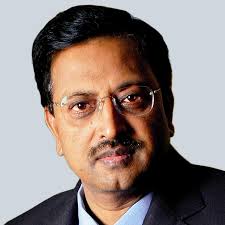 Prime Minister Manmohan Singh on Tuesday accused Pakistan of using terrorism as an instrument of state policy, and asserted that the Mumbai attacks were carried out by Lashkar-e-Toiba with “sure” support from some official agencies in the neighbouring country.
Prime Minister Manmohan Singh on Tuesday accused Pakistan of using terrorism as an instrument of state policy, and asserted that the Mumbai attacks were carried out by Lashkar-e-Toiba with “sure” support from some official agencies in the neighbouring country.
Addressing the Chief Ministers’ Conference on Internal Security at Vigyan Bhavan in New Delhi, Dr Singh said that some Pakistani official agencies must have supported the terrorists who attacked Mumbai, given the sophistication and military precision of the Mumbai strikes. He added that terror in India was largely sponsored by outsiders, especially Pakistan.
On LeT’s involvement in the Mumbai attacks, the PM said that evidence has been gathered, including by outside agencies like the US’ FBI, to prove that.
The PM further accused Pakistan of being engaged in “whipping up war hysteria”. India remained steadfastly united even as “Pakistan engages in whipping up war hysteria”, Dr Singh said.
“The situation may appear challenging and it is challenging but it is by no means beyond our control,” he said. “A strong sense of nationhood” is needed to counter external and internal threats, he added.
“Unfortunately we cannot choose our neighbours,” the Prime Minister said. He added that Pakistan has encouraged and provided sanctuaries to terrorists in the past.
Admitting that there had been a security lapse in the November 26-29 terror attacks in Mumbai, he said the sea route was being exploited and explored by terrorists as an alternative to land routes.
“The terrorists who carried out the attack on Mumbai used the sea route and managed to evade our surveillance.”
Complex security situation
While inaugurating the conference, Dr Singh said that security situation in the country has become more complex since the last meet of the Chief Ministers.
The PM noted that most of the terrorists act in connivance with intelligence agencies in neighbouring countries.
While commenting on the challenges faced by India, the Prime Minister said that problems faced by our country are compounded by vulnerable security environment and fragile governments in the neighbouring countries.
The more fragile the government, the more dangerous it was, he said. Pakistan’s responses were an “obvious example”.
He further stressed on the need for a holistic approach to deal with the menace of terrorism.
Referring to insurgency in the country’s Northeast, the Prime Minister said that militants there were being sheltered by the neighbouring country, apparently referring to Bangladesh.
According to the PM, time has come to establish a permanent crisis management group to handle terrorist attack-like situations.
Dr Singh also stressed on the need to share information among intelligence agencies most important.
Underlining the need to review the current security set-up, the Prime Minister called for better co-ordination among various wings of intelligence. A review of the training and equipment for the security forces was also called for, he added.
The PM said infiltration was also taking place from Bangladesh and Nepal though it had not ceased from the Line of Control (LoC) — that divides Kashmir between India and Pakistan.
The PM said that India must “implement a policy of zero tolerance” towards terrorism and few countries had suffered from terror attacks in the way that India had.
Stressing that terror should not be conceptualised solely in military terms, the PM stated, “We must ensure the concept of terrorism is delegitimised.”
Meet’s agenda
Terrorism, strengthening of intelligence network, security of coastline and key establishments, including atomic sites, are on top of agenda at the conference.
Union Home Minister P Chidambaram, Defence Minister AK Antony, and External Affairs Minister Pranab Mukherjee were also present at the inaugural ceremony.
Chidambaram, in his first such exercise after being shifted from the Finance Ministry, will seek views from all state governments on action to beef up the security machinery to check terrorism in the wake of Mumbai terror attack, official sources said.
The conclave will focus on beefing up intelligence network and strengthening coastal security, particularly considering the fact that the terrorists involved in Mumbai carnage used the sea route to sneak into the metropolis.
Security of key installations, including nuclear power plants, will also figure prominently at the meeting.
The issue of strengthening intelligence collection and sharing mechanism (Subsidiaries of Multi Agency Centre), modernisation of police forces, setting up of commando units in all states/Union territories police forces and discussion on the modalities of the working of the newly-formed National Investigation Agency are also on the agenda of the meeting.
 India rejected on Wednesday a suggestion by Britain that security in South Asia was linked to the Kashmir dispute, and urged nations to act against states which sponsor terrorism.
India rejected on Wednesday a suggestion by Britain that security in South Asia was linked to the Kashmir dispute, and urged nations to act against states which sponsor terrorism.






